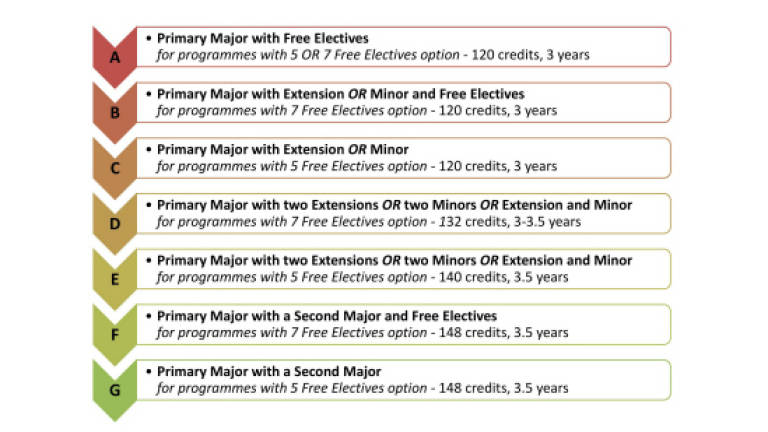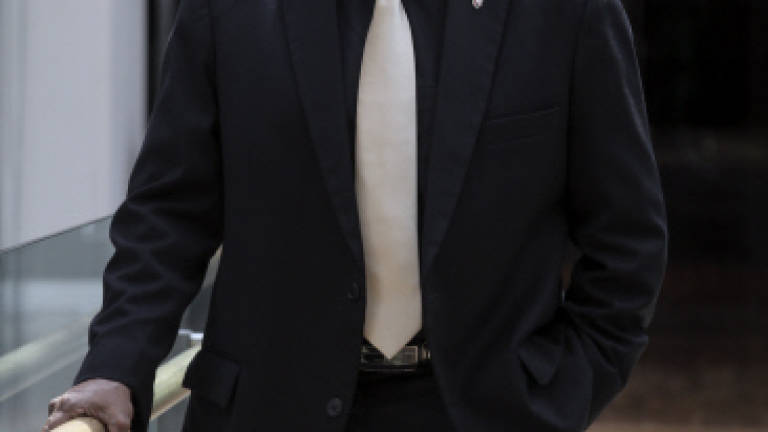A real change for education


The scenario that will play out for graduates in the future are workplaces that not only emphasise on how to get the job done, but offices that demand a high degree of social intelligence. As simple tasks are being replaced by machines, what becomes more important now are human-centred characteristics such as emotional intelligence which machines cannot replace.
And with the convergence between man and machine being brought about by the Fourth Industrial Revolution, or Industry 4.0, the skills graduates need in this age will be different from those expected in the Third Industrial Revolution, or the Internet Age.
While Industry 4.0 sees the importance for skills such as critical thinking, people management, judgement with empathy, negotiation and resilience, these were not imperative in the Internet Age which emphasised on skills and academic knowledge. In fact, the Internet Age killed the types of skills needed in Industry 4.0.
The other scene graduates will see in time to come are jobs no longer being localised to one place. The people of tomorrow will be working either physically or virtually across many areas, and one day you could be in Malaysia managing Beijing and the next in Jakarta covering Malaysia.
What does this mean for the future of education? For a very long time, when there is talk about bringing change to education, the focus will always fall on the teachers’ lap telling what they should be doing. But we fail to realise what the teacher does is programmed by a curriculum, so to bring real change to education, we need to look at the curriculum itself.
Taylor’s University has done just that by enhancing their curriculum to fit today’s generation of learners. Called the Taylor’s Curriculum Framework (TCF), it aims to future-proof graduates to be ready for the Fourth Industrial Revolution. This new curriculum framework paves the way for the future of education to be broad-based, personalised and flexible.
Taylor’s University deputy vice-chancellor and chief academic officer Prof Dr Pradeep Nair explained that Industry 4.0 will see more multi-disciplinary degrees rather than focusing on one particular discipline (broad-based).
Students will be free to learn according to their interests and strengths at their own pace, and are open to learning in industry, in Taylor’s or in another university in another country (personalised). Students also have the choice of where, when and how they learn (flexible).
“Currently, the emphasis is on face-to-face learning but I believe too much attention on that makes graduates less prepared for the future. Statistics show that people in the future will retire with between 15 and 19 jobs, and these jobs are not in the same country or sector.
“For current graduates to be in different jobs in the future, they need to be able to learn for themselves. If they are able to learn independently, they are trained for a life in the future where they can go online and take a MOOC course in preparation to move to another job,” Pradeep said.
With the internet and advancements in technology, the ability to access information becomes so easy that the role of the teacher is no longer to deliver knowledge, but to facilitate learning. Taylor’s University has adopted the way people study in the future where students don’t necessarily have to be in lecture halls when they can access videos of their lectures which are recorded in real time complete with PowerPoint slides.
“Technology has allowed students to have a much richer learning experience, without sitting in the classroom for a long time. Students can now meet friends to discuss what he has learned, communicate with his lecturer online and if necessary, meet him face-to-face,” Pradeep said.
With the new curriculum framework, all of Taylor’s degree programmes are divided into three components – Primary Major with a Specialisation, University Core and Complementary Studies.
These elements come together where a student starts by picking his major and only selecting the specialisation in the second year, which gives him the flexibility to decide the area he prefers. In Complementary Studies, he then has a choice among Free Elective, Minor, Extension or Second Major.
If he is interested to go deeper into the specialisation he has chosen, he can select an Extension, or if he wants to study something outside his major, that is a Minor. He can also opt to do a Second Major in another discipline, or choose freely in the fields of arts, humanities and social science, business, service and management, and science technology and society if he goes for Free Electives. Students get a fantastic choice from 11 Second Majors, 21 Extensions, 53 Minors and 203 Free Electives.
The TCF empowers students to co-curate their own study plan according to their interests, strengths and ambitions with their university mentor. Like the saying “those who create, commit”, Pradeep believes if students get to participate in what they are going to learn, they will be more committed.
He also thinks that education in the future must provide students the opportunity to be exposed to different countries, cultures and languages, therefore education cannot be limited to a single campus. “The new curriculum framework has introduced a new third (short) semester that allows students to read some of their courses abroad,” he said.
With 172 partner universities in 21 countries and growing, students gain tremendous opportunities to develop their cultural adaptivity. This now makes Taylor’s a truly global university with their students learning in countries across the world.
The other part of the new curriculum framework is new modules that focus on life skills and emotional well-being, and team dynamics and relationship management. These classes teach students on matters such as personal values, personality profiling and smart goal setting as well as how to work in teams, communicating effectively and managing relationships with others.
“What we have done very differently is we are not using lecturers to teach these topics but life skill trainers. These are psychologists, humanitarians and coaches who joined us because they could work with young people to change their lives,” Pradeep said.
Taylor’s University is now working on the second phase where they will be looking at modular level changes to overhaul the assessment system, which they believe will influence the students’ behaviour.
“We will also be adopting a ‘teach less, learn more’ philosophy where face-to-face lectures will be gradually reduced from the first to third year to build students’ independent self learning and peer learning abilities,” Pradeep said. His hope is for other universities to follow suit as it not only contributes to the country’s development, but valuable in training the future workforce.